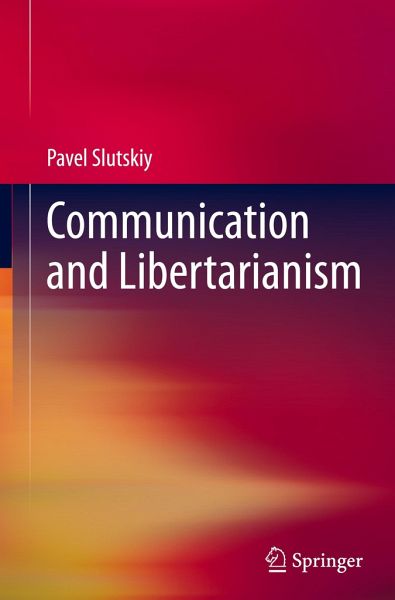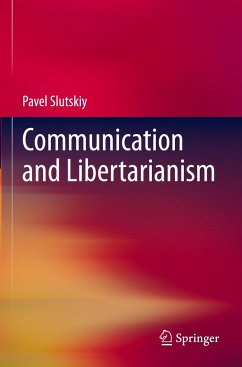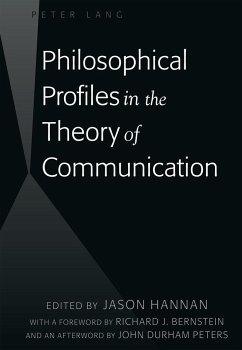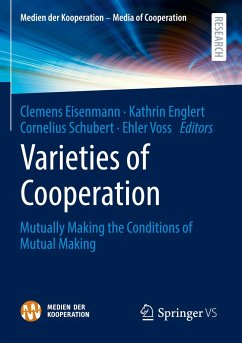
Communication and Libertarianism
Versandkostenfrei!
Versandfertig in 6-10 Tagen
98,99 €
inkl. MwSt.
Weitere Ausgaben:

PAYBACK Punkte
49 °P sammeln!
"This is an outstanding contribution to both libertarian political philosophy and communication theory. It is far and away the most comprehensive work on communication issues in libertarian theory ever published. The author has integrated successfully the libertarian insights of Mises, Rothbard, Block, Kinsella and others with the philosophy of language as developed by Austin, Searle and Grice. He has done so in a unique and unprecedented way. The book would appeal to students and scholars interested in libertarian theory and more generally, to philosophers and political scientists interested ...
"This is an outstanding contribution to both libertarian political philosophy and communication theory. It is far and away the most comprehensive work on communication issues in libertarian theory ever published. The author has integrated successfully the libertarian insights of Mises, Rothbard, Block, Kinsella and others with the philosophy of language as developed by Austin, Searle and Grice. He has done so in a unique and unprecedented way. The book would appeal to students and scholars interested in libertarian theory and more generally, to philosophers and political scientists interested in high-level scholarship."
- David Gordon, libertarian philosopher and intellectual historian, Ludwig von Mises Institute.
- David Gordon, libertarian philosopher and intellectual historian, Ludwig von Mises Institute.














